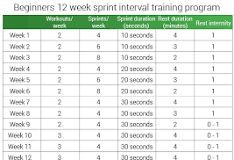Relaxation therapy is a type of therapy that is focused on helping individuals achieve a state of deep relaxation. This type of therapy can be used to treat a variety of conditions, including anxiety, stress, and insomnia.
The goal of relaxation therapy is to help individuals learn how to relax their minds and bodies. This can be achieved through a variety of techniques, including deep breathing exercises, progressive muscle relaxation, visualization, and meditation.
One of the key benefits of relaxation therapy is its ability to reduce stress levels. When we are stressed, our bodies release hormones like cortisol and adrenaline that can have negative effects on our physical and mental health. Relaxation therapy helps to counteract these effects by promoting the release of endorphins, which are natural painkillers that help us feel calm and relaxed.
Another benefit of relaxation therapy is its ability to improve sleep quality. Many people struggle with insomnia or other sleep disorders that can leave them feeling tired and irritable during the day. Relaxation therapy can help individuals fall asleep faster and stay asleep longer by reducing feelings of anxiety and promoting a sense of calm.
Relaxation therapy has also been shown to have positive effects on mental health. It can help individuals manage symptoms related to depression and anxiety by reducing feelings of tension and promoting a sense of well-being.
Overall, relaxation therapy is a safe and effective way to promote physical and mental health. Whether you are dealing with stress, anxiety, or sleep issues, this type of therapy can help you achieve a state of deep relaxation that will leave you feeling refreshed and rejuvenated. So why not give it a try? You may be surprised at just how much it can improve your overall quality of life.
Frequently Asked Questions About Relaxation Therapy: Benefits, Techniques, and Risks
- What is relaxation therapy?
- How does relaxation therapy work?
- What are the benefits of relaxation therapy?
- What techniques are used in relaxation therapy?
- How long does a typical session of relaxation therapy last?
- How often should I practice relaxation therapy?
- Is there any research to support the effectiveness of relaxation therapy?
- Is there any risk associated with using relaxation therapy?
What is relaxation therapy?
Relaxation therapy is a type of therapy that focuses on helping individuals achieve a state of deep relaxation. This can be achieved through various techniques, including breathing exercises, meditation, visualization, and progressive muscle relaxation. The goal of relaxation therapy is to help individuals learn how to relax their minds and bodies, which can be beneficial for managing stress, anxiety, and other mental health conditions. Relaxation therapy has been shown to have positive effects on physical health as well, such as improving sleep quality and reducing muscle tension. It is a safe and effective way to promote overall well-being and can be used in combination with other therapies or treatments.
How does relaxation therapy work?
Relaxation therapy works by helping individuals achieve a state of deep relaxation, both physically and mentally. This can be achieved through a variety of techniques, including deep breathing exercises, progressive muscle relaxation, visualization, and meditation.
One of the key components of relaxation therapy is learning how to control your breathing. When we are stressed or anxious, our breathing becomes shallow and rapid, which can exacerbate feelings of tension and anxiety. By learning how to take slow, deep breaths, we can activate our body’s relaxation response and promote feelings of calmness and relaxation.
Progressive muscle relaxation is another technique commonly used in relaxation therapy. This involves tensing and then relaxing different muscle groups in the body, one at a time. By doing this, individuals become more aware of their physical sensations and learn how to release tension from their muscles.
Visualization is another powerful tool used in relaxation therapy. This involves imagining a peaceful scene or environment that helps to promote feelings of calmness and well-being. By focusing on this mental image, individuals can shift their attention away from stressful thoughts or situations.
Meditation is also commonly used in relaxation therapy. This involves sitting quietly and focusing your attention on your breath or a specific object or thought. Through regular practice, meditation can help individuals develop greater self-awareness and mindfulness, which can lead to reduced stress levels and improved mental health.
Overall, the goal of relaxation therapy is to help individuals learn how to relax their minds and bodies in order to reduce stress levels and promote feelings of calmness and well-being. By incorporating these techniques into their daily routines, individuals can improve their overall quality of life and better manage symptoms related to anxiety, depression, insomnia, and other conditions.
What are the benefits of relaxation therapy?
Relaxation therapy is a type of therapy that focuses on helping individuals achieve a state of deep relaxation. This type of therapy has many benefits for both physical and mental health. Here are some of the key benefits of relaxation therapy:
- Reduces stress: Relaxation therapy can help to reduce stress levels by promoting the release of endorphins, which are natural painkillers that help us feel calm and relaxed.
- Improves sleep quality: Many people struggle with insomnia or other sleep disorders that can leave them feeling tired and irritable during the day. Relaxation therapy can help individuals fall asleep faster and stay asleep longer by reducing feelings of anxiety and promoting a sense of calm.
- Lowers blood pressure: High blood pressure is a common problem that can lead to serious health issues over time. Relaxation therapy has been shown to help lower blood pressure in individuals with hypertension.
- Reduces muscle tension: Muscle tension is a common symptom of stress and anxiety. Relaxation therapy can help to reduce muscle tension by promoting relaxation throughout the body.
- Improves mental health: Relaxation therapy has been shown to have positive effects on mental health by reducing symptoms related to depression and anxiety, improving mood, and promoting a sense of well-being.
- Boosts immune system function: Chronic stress can weaken the immune system, making individuals more susceptible to illness and disease. Relaxation therapy has been shown to boost immune system function by reducing stress levels.
Overall, relaxation therapy is a safe and effective way to promote physical and mental health. Whether you are dealing with stress, anxiety, or sleep issues, this type of therapy can help you achieve a state of deep relaxation that will leave you feeling refreshed and rejuvenated.
What techniques are used in relaxation therapy?
Relaxation therapy employs various techniques to help individuals achieve a state of deep relaxation. Here are some of the most common techniques used in relaxation therapy:
- Deep breathing exercises: This technique involves taking slow, deep breaths in through the nose and out through the mouth. It is designed to slow down the heart rate and calm the mind.
- Progressive muscle relaxation: This technique involves tensing and then relaxing different muscle groups in the body, starting from the feet and working up to the head. It is designed to release physical tension and promote relaxation.
- Visualization: This technique involves imagining a peaceful or calming scene, such as a beach or a forest, in order to promote feelings of relaxation and well-being.
- Meditation: This technique involves focusing on a particular object, thought, or sound in order to clear the mind and promote relaxation.
- Yoga: Yoga combines physical postures with breathing exercises and meditation techniques to promote physical and mental health.
- Tai chi: Tai chi is an ancient Chinese practice that combines slow, flowing movements with deep breathing exercises to promote relaxation and balance.
- Massage therapy: Massage therapy involves manipulating soft tissues in the body to promote relaxation, reduce muscle tension, and relieve pain.
These techniques can be used alone or in combination with one another depending on an individual’s needs and preferences. A qualified practitioner can help individuals determine which techniques will be most effective for their specific needs.
How long does a typical session of relaxation therapy last?
The length of a typical session of relaxation therapy can vary depending on the individual practitioner and the specific techniques used. However, most relaxation therapy sessions last anywhere from 30 minutes to an hour.
During a session, the therapist may guide the individual through various relaxation techniques such as deep breathing exercises, progressive muscle relaxation, visualization, or meditation. The goal is to help the individual reach a state of deep relaxation and reduce feelings of stress and tension.
Some therapists may also incorporate other complementary therapies into their sessions such as aromatherapy or massage to enhance the relaxation experience.
It’s important to note that while one session of relaxation therapy can be beneficial, it often takes multiple sessions to see significant results. Many individuals choose to attend regular sessions over an extended period of time to maintain their progress and continue experiencing the benefits of relaxation therapy.
Ultimately, the length and frequency of relaxation therapy sessions will depend on the individual’s needs and goals as well as the recommendations of their therapist.
How often should I practice relaxation therapy?
The frequency of relaxation therapy practice can vary depending on individual needs and goals. However, it is generally recommended to practice relaxation techniques on a daily basis for maximum benefit.
Incorporating relaxation therapy into your daily routine can help you manage stress and anxiety levels more effectively, improve sleep quality, and promote a sense of well-being. This can be particularly helpful if you have a busy or stressful lifestyle that leaves you feeling overwhelmed or burnt out.
The good news is that relaxation therapy techniques can be practiced at any time of the day, and in any setting. For example, deep breathing exercises can be done while sitting at your desk, progressive muscle relaxation can be done before bed, and visualization techniques can be done during a break from work.
It’s important to note that practicing relaxation therapy doesn’t have to take up a lot of time. Even just 10-15 minutes of daily practice can have significant benefits for your physical and mental health.
If you are new to relaxation therapy, it may be helpful to work with a therapist or coach who specializes in this area. They can help you identify the best techniques for your needs and provide guidance on how to incorporate them into your daily routine.
Overall, the key to success with relaxation therapy is consistency. By making it a regular part of your routine, you can reap the many benefits that this powerful technique has to offer.
Is there any research to support the effectiveness of relaxation therapy?
Yes, there is a significant amount of research that supports the effectiveness of relaxation therapy. Numerous studies have shown that relaxation therapy can be an effective treatment for a variety of conditions, including anxiety, stress, insomnia, and chronic pain.
For example, a study published in the Journal of Clinical Psychology found that relaxation therapy was effective in reducing symptoms of anxiety and depression in individuals with generalized anxiety disorder. Another study published in the Journal of Psychosomatic Research found that relaxation therapy was effective in reducing stress levels and improving overall quality of life in individuals with chronic pain.
In addition to these studies, there is also research to suggest that relaxation therapy can have positive effects on physical health. For example, a study published in the Journal of Alternative and Complementary Medicine found that relaxation therapy was effective in reducing blood pressure levels in individuals with hypertension.
Overall, the evidence suggests that relaxation therapy can be an effective treatment for a variety of physical and mental health conditions. If you are interested in trying this type of therapy for yourself, it is important to work with a qualified therapist who can help guide you through the process and tailor the treatment to your individual needs.
Is there any risk associated with using relaxation therapy?
Relaxation therapy is generally considered safe and low-risk. However, as with any form of therapy or treatment, there are some potential risks to be aware of.
For example, some people may experience temporary side effects such as dizziness, lightheadedness, or nausea during relaxation therapy. These symptoms are usually mild and go away quickly, but it’s important to let your therapist know if you experience any discomfort during the session.
In rare cases, relaxation therapy can trigger a panic attack in individuals who are prone to anxiety. If you have a history of anxiety or panic attacks, it’s important to discuss this with your therapist before starting relaxation therapy.
It’s also worth noting that relaxation therapy should not be used as a substitute for medical treatment for serious health conditions. While it can be helpful in managing symptoms related to stress and anxiety, it is not a cure-all solution for underlying health issues.
Overall, the risks associated with relaxation therapy are minimal and can be mitigated by working with a qualified therapist who can help you develop a personalized treatment plan that meets your individual needs and goals. As with any form of therapy or treatment, it’s important to do your research and choose a reputable provider who has experience working with clients in your specific situation.




